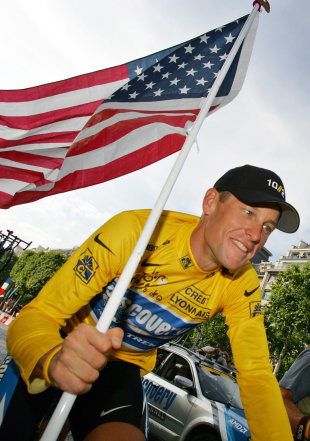LONDON (Reuters) - The euro hit an 11-month high against the dollar and European shares rose on Monday as the region's improving economic growth outlook and the declining prospects of further monetary easing bolstered demand.
The common currency peaked at $1.3404, its highest level since February 2012, producing a hefty gain of 2.5 percent since European Central Bank President Mario Draghi gave a more optimistic outlook for the economic recovery late last week.
Europe's FTSE Eurofirst 300 index, which has been rallying all year, added 0.2 percent in early trade while London's FTSE 100 <.ftse>, Frankfurt's DAX <.gdaxi> and Paris's CAC-40 <.fchi> all traded around 0.1-0.3 percent higher.
The moves came before release of euro zone industrial output data for November which is expected to show a rise of 0.1 percent month-on-month after a 1.4 percent fall in October, adding to signs of an improvement in activity over recent months.
"The mood in the euro zone has improved. And though things have not moved at the same pace in all countries, monetary and financial conditions are less tight, even in Spain," analysts at BNP Paribas said in a note.
Signs of a growth pickup in recent data from the United States and China, along with the easier monetary polices of major global central banks, have underpinned a broad rally in equity markets worldwide. The MSCI world equity index <.miwd00000pus> was trading near 18 month highs on Monday, although little changed on the day.
Chicago Federal Reserve chief Charles Evans added to the better sentiment. Evans, who is a voting member of the Fed's policymaking committee this year, said the U.S. economy is expected to grow 2.5 percent in 2013 and 3.5 percent in 2014.
Analysts expect further data this week to support demand for riskier assets, with U.S. and Chinese figures likely to show further momentum in the world's two biggest economies.
YEN SINKS
However, the Japanese yen bucked the stronger trend among the world's major currencies against the dollar when it touched a fresh a 2-1/2-year low of 89.67
The falls followed comments from new Prime Minister Shinzo Abe on Sunday calling on the Bank of Japan (BOJ) to set a 2 percent inflation target and pursue bolder monetary easing to end nearly two decades of deflation.
Tokyo markets were closed on Monday for a holiday but MSCI's broadest index of Asia-Pacific shares outside Japan <.miapj0000pus> rose a modest 0.3 percent on the statement, remaining near a 17-month peak set on Friday.
Commodity prices recovered after last week's decline. Brent crude gained 44 cents to $111.08 a barrel as fears of supply disruption in the Middle East resurfaced, while U.S. crude rose 67 cents to $94.23 a barrel.
Copper edged up 0.4 percent to $8,077 a tonne and gold was up 0.3 percent at $1,667.45 an ounce.
(Reporting by Richard Hubbard; editing by David Stamp)
The common currency peaked at $1.3404, its highest level since February 2012, producing a hefty gain of 2.5 percent since European Central Bank President Mario Draghi gave a more optimistic outlook for the economic recovery late last week.
Europe's FTSE Eurofirst 300 index, which has been rallying all year, added 0.2 percent in early trade while London's FTSE 100 <.ftse>, Frankfurt's DAX <.gdaxi> and Paris's CAC-40 <.fchi> all traded around 0.1-0.3 percent higher.
The moves came before release of euro zone industrial output data for November which is expected to show a rise of 0.1 percent month-on-month after a 1.4 percent fall in October, adding to signs of an improvement in activity over recent months.
"The mood in the euro zone has improved. And though things have not moved at the same pace in all countries, monetary and financial conditions are less tight, even in Spain," analysts at BNP Paribas said in a note.
Signs of a growth pickup in recent data from the United States and China, along with the easier monetary polices of major global central banks, have underpinned a broad rally in equity markets worldwide. The MSCI world equity index <.miwd00000pus> was trading near 18 month highs on Monday, although little changed on the day.
Chicago Federal Reserve chief Charles Evans added to the better sentiment. Evans, who is a voting member of the Fed's policymaking committee this year, said the U.S. economy is expected to grow 2.5 percent in 2013 and 3.5 percent in 2014.
Analysts expect further data this week to support demand for riskier assets, with U.S. and Chinese figures likely to show further momentum in the world's two biggest economies.
YEN SINKS
However, the Japanese yen bucked the stronger trend among the world's major currencies against the dollar when it touched a fresh a 2-1/2-year low of 89.67
The falls followed comments from new Prime Minister Shinzo Abe on Sunday calling on the Bank of Japan (BOJ) to set a 2 percent inflation target and pursue bolder monetary easing to end nearly two decades of deflation.
Tokyo markets were closed on Monday for a holiday but MSCI's broadest index of Asia-Pacific shares outside Japan <.miapj0000pus> rose a modest 0.3 percent on the statement, remaining near a 17-month peak set on Friday.
Commodity prices recovered after last week's decline. Brent crude gained 44 cents to $111.08 a barrel as fears of supply disruption in the Middle East resurfaced, while U.S. crude rose 67 cents to $94.23 a barrel.
Copper edged up 0.4 percent to $8,077 a tonne and gold was up 0.3 percent at $1,667.45 an ounce.
(Reporting by Richard Hubbard; editing by David Stamp)



